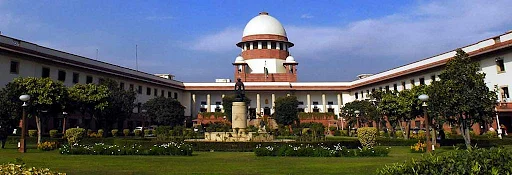Ahmedabad
(Head Office)Address : 506, 3rd EYE THREE (III), Opp. Induben Khakhrawala, Girish Cold Drink Cross Road, CG Road, Navrangpura, Ahmedabad, 380009.
Mobile : 8469231587 / 9586028957
Telephone : 079-40098991
E-mail: dics.upsc@gmail.com

Judicial Majoritarianism
News: The blind acceptance of numerical majorities in judicial decision-making and the constitutional disregard of analysis and appreciation of arguments and evidence in dissenting judgments have been in news recently post the Supreme Court Judgement on demonetization.
What is Judicial Majoritarianism?
Judicial majoritarianism refers to numerical majorities, i.e., number of judges supporting a judgment.
Cases in SC are usually heard either by Division Benches which consist of two judges or by Constitutional Benches which consist of five, seven, nine, 11 or even 13 judges.
Judicial majoritarianism deals with the Constitution divisions which involve a substantial interpretation of constitutional provisions. It helps in making the decision-making process easier.
The concept of majoritarianism comes from Article 145(5) of the Constitution which states that no judgment in such cases can be delivered except with the concurrence of a majority of the judges.
However, it also says that judges are free to deliver dissenting judgments or opinions.
What are concerns with Judicial Majoritarianism?
Issue of why numerical majorities of judicial bodies are accepted without any debate, while numerical majorities in representative bodies such as the Lok Sabha are often looked at with suspicion.
Differences in judicial decisions can be because of differences in either the methodology adopted and the logic applied by the judges. Since judgements are made on different methodology and logic, there are chances that those judges giving the majority may have fallen into error of methodologies or logics.
In such a scenario, judges who are dissenting may form a minority but their methodology applied may be correct and without errors compared to those who formed the majority. However, those forming the minority get very little attention.
A great example is of the dissenting opinion of Justice H.R. Khanna in A.D.M. Jabalpur v. Shivkant Shukla (1976) upholding the right to life and personal liberty even during situations of constitutional exceptionalism.
Another example is the dissenting opinion of Justice Subba Rao in the Kharak Singh v. State of U.P. (1962) case upholding the right to privacy which received the judicial stamp of approval in the K.S. Puttaswamy v. UOI (2017) case.
Moreover, the rate of Dissent itself is subjected to influences. For example, the study found that the rate of dissent where the Chief Justice was a part of the Bench was lower than in those cases where the Chief Justice was not on the Bench. Such instances highlight the concerns of the efficiency of the judgments and of the majoritarianism procedures adopted by the judiciary in deciding the case of national and constitutional importance.
Way Forward
Seniority-based assessment as suggested by Ronald Dworkin prefers a system which may either give more weightage to the vote of senior judges given that they have more experience or to the junior judges as they may represent popular opinion better.

Address : 506, 3rd EYE THREE (III), Opp. Induben Khakhrawala, Girish Cold Drink Cross Road, CG Road, Navrangpura, Ahmedabad, 380009.
Mobile : 8469231587 / 9586028957
Telephone : 079-40098991
E-mail: dics.upsc@gmail.com
Address: A-306, The Landmark, Urjanagar-1, Opp. Spicy Street, Kudasan – Por Road, Kudasan, Gandhinagar – 382421
Mobile : 9723832444 / 9723932444
E-mail: dics.gnagar@gmail.com
Address: 2nd Floor, 9 Shivali Society, L&T Circle, opp. Ratri Bazar, Karelibaugh, Vadodara, 390018
Mobile : 9725692037 / 9725692054
E-mail: dics.vadodara@gmail.com
Address: 403, Raj Victoria, Opp. Pal Walkway, Near Galaxy Circle, Pal, Surat-394510
Mobile : 8401031583 / 8401031587
E-mail: dics.surat@gmail.com
Address: 57/17, 2nd Floor, Old Rajinder Nagar Market, Bada Bazaar Marg, Delhi-60
Mobile : 9104830862 / 9104830865
E-mail: dics.newdelhi@gmail.com